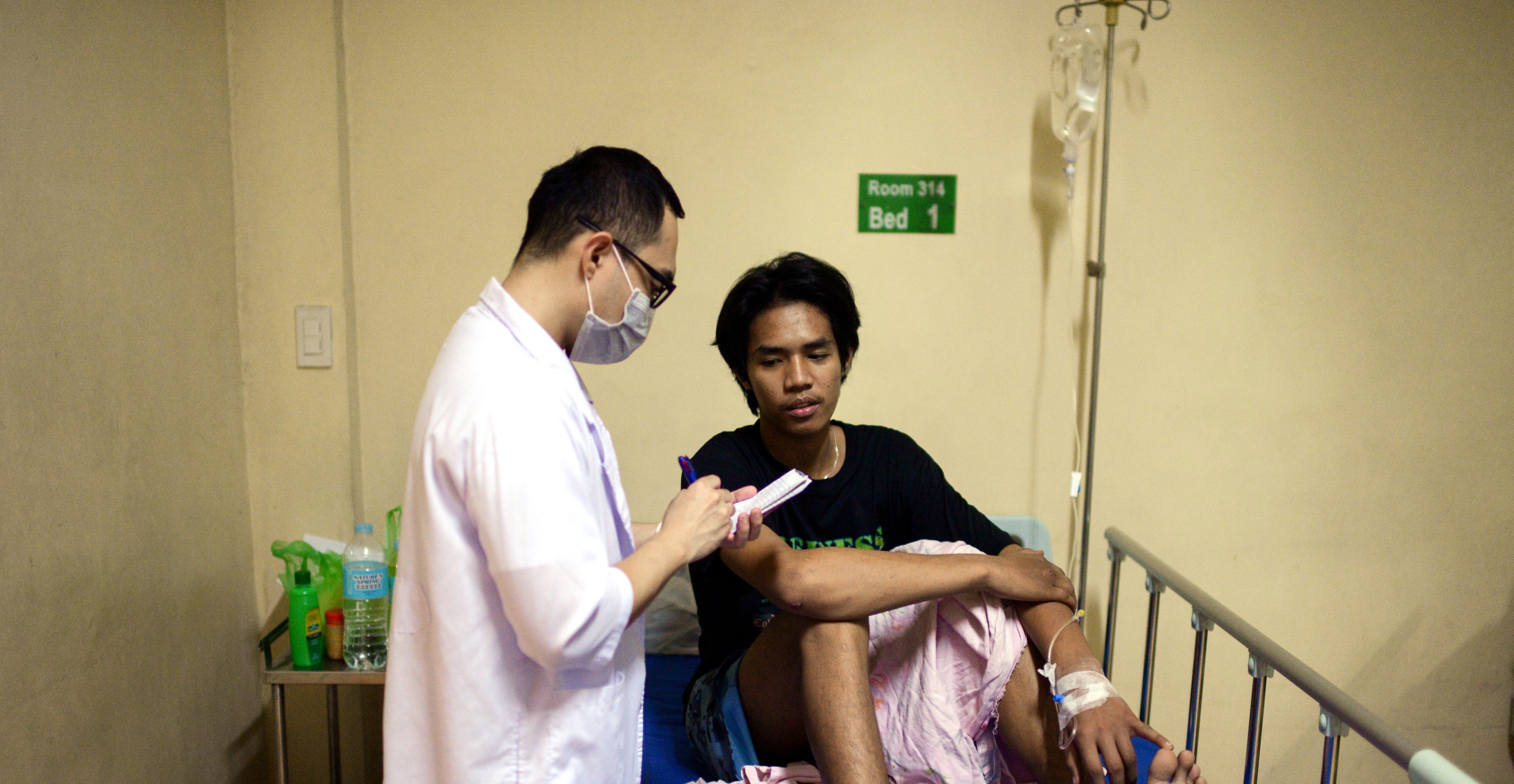This 'rice ATM' is feeding Viet Nam's poorest amidst the coronavirus crisis

A woman gets rice from a 24/7 automatic rice dispensing machine, 'Rice ATM', during the outbreak of the coronavirus disease (COVID-19), in Ho Chi Minh, Vietnam. Image: REUTERS/Yen Duong
- Unemployed people can collect a free bag of rice from the machine.
- Many small businesses in Viet Nam are closed, leaving thousands of people out of work.
- The idea is spreading to big cities throughout Viet Nam.
A Vietnamese entrepreneur in Ho Chi Minh City has invented a 24/7 automatic dispensing machine providing free rice for people out of work following an ongoing nationwide lockdown to curb the spread of the novel coronavirus.
Viet Nam has reported 262 COVID-19 cases, and no deaths so far, but as a result of a 15-day social distancing programme that began on March 31 many small businesses have been shuttered and thousands of people temporarily laid off from work.
Nguyen Thi Ly’s husband was among those who have lost their job.
“This rice ATM has been helpful. With this one bag of rice, we can have enough for one day,” said the 34-year-old mother of three children. “Now, we only need other food. Our neighbors sometimes gave us some leftover food, or we have instant noodles.”
The machine distributes a 1.5kg (3.3lb) bagful of rice from a small silo to waiting workers, many of whom are street sellers or people who earned a living from cash-in-hand jobs like housekeeping or selling lottery tickets.
Hoang Tuan Anh, the businessman behind the idea, had initially donated a batch of smart doorbells to hospitals in Ho Chi Minh City before turning his technological expertise to food distribution.
Similar ‘rice ATMs’ have been set up in other big cities like Hanoi, Hue and Danang, according to state media.
Employees monitoring the rice ATM declined to comment, but Anh told state media he wanted people to feel they still had access to food and resources, despite the current economic difficulties they found themselves in.
“I refer to this machine as a ‘rice ATM’ because people can withdraw rice from it, assured that there are still good people out there who want to give them a second chance,” he said.
While many in the Communist-ruled country can rely on a social safety-net, and the government has introduced a stimulus package designed to help society’s most vulnerable, some people living on the margin, like Ly and her family, have not received enough support.
“I read about this rice ATM on the internet. I came to check it out, and couldn’t believe it came out for real. I really hope the sponsors would keep doing this until the end of the pandemic,” said Ly, adding that her family’s biggest problem was now paying their rent.
Don't miss any update on this topic
Create a free account and access your personalized content collection with our latest publications and analyses.
License and Republishing
World Economic Forum articles may be republished in accordance with the Creative Commons Attribution-NonCommercial-NoDerivatives 4.0 International Public License, and in accordance with our Terms of Use.
The views expressed in this article are those of the author alone and not the World Economic Forum.
Stay up to date:
Viet Nam
Related topics:
Forum Stories newsletter
Bringing you weekly curated insights and analysis on the global issues that matter.
More on Health and Healthcare SystemsSee all
Mille Sofie Stenmarck Korsgaard and Daniel Holth Larsen
November 20, 2025







